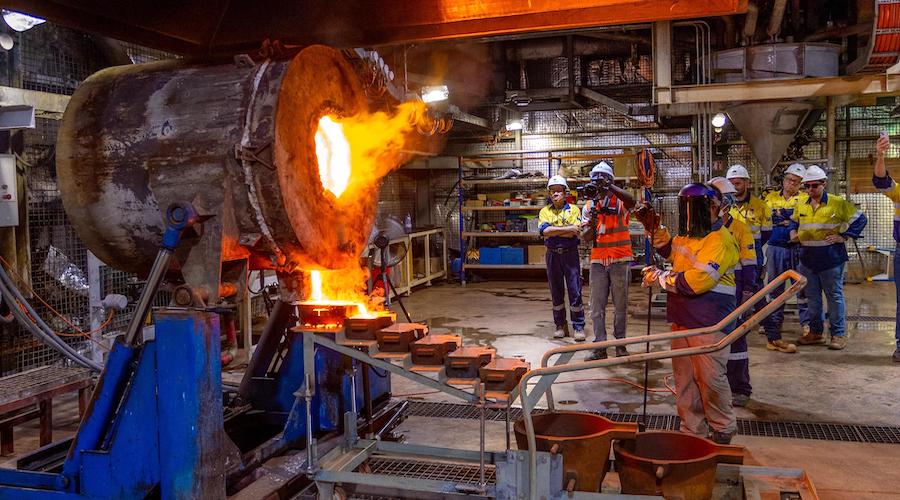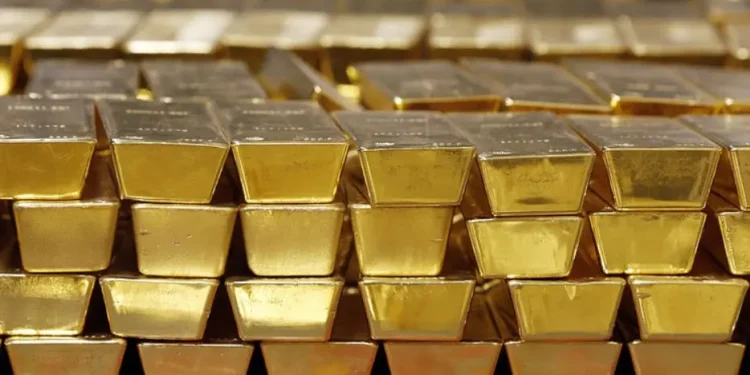Burkina Faso’s Nationalization Rattles West Africa’s Gold Sector
Burkina Faso is accelerating its drive to nationalize natural resources, requesting this week to acquire another 35% of West African Resources’ (ASX: WAF) Kiaka gold mine — a move that forced the miner into a trading halt on Thursday.
The company said the government wants to raise its stake in Kiaka, which poured first gold in June, “for valuable paid consideration”. It added the trading should resume Monday.
WAF has grown from a struggling explorer into one of West Africa’s biggest success stories, producing about 500,000 ounces of gold a year at low cost. The company says it has already paid hundreds of millions of dollars in taxes and royalties to Burkina Faso, with revenues expected to reach the billions once Kiaka ramps up.
Orezone Gold (ASX, TSX: ORE), which operates the Bomboré mine, also halted trading after the news. The company said it has received no similar request from the government but plans to meet with officials this weekend.
The development highlights the fragile investment climate in West Africa, already rattled by political instability in Mali.
Burkina Faso, Africa’s fourth-largest gold producer, has added key assets to the portfolio of its new state-owned miner, Société de Participation Minière du Burkina (SOPAMIB).
In June, five gold mines and exploration permits, previously held by Endeavour Mining and Lilium, were transferred to SOPAMIB. The push began in August 2024, when the government nationalized the Boungou and Wahgnion mines for about $80 million, a fraction of the $300 million their sale had been valued at.

Other operators remain exposed. Canada’s IAMGOLD (TSX: IMG) continues to run the Essakane mine, in which the government holds a 10% stake. Security concerns, however, weigh heavily on its operations.
A popular leader
The policy shift reflects the growing influence of Ibrahim Traoré, the 37-year-old military leader who seized power in 2022 and declared himself president. Traoré has called on his ministers to expand state control over resources while framing his rule as part of a broader Pan-African and anti-Western revival.
His supporters see him as a bulwark against foreign interference. In April, thousands rallied in Ouagadougou after an alleged counter-coup attempt failed. They also denounced comments by US Africa Command chief Gen. Michael Langley, who accused Traoré of misusing gold reserves. Demonstrations spread to London, Kingston and Montego Bay, where members of the African diaspora voiced solidarity and praised him as a “Black liberator.”
Whether Traoré can stabilize Burkina Faso and repel a long-running Islamist insurgency will determine how far his resource nationalism spreads across the region.
New ‘safe’ destinations
For foreign miners, the upheaval underscores how quickly long-term agreements can collapse. Countries such as Ghana, Egypt, Namibia and Botswana continue to offer more predictable frameworks, while Côte d’Ivoire and Guinea are emerging as new magnets for investment.
Rio Tinto’s (ASX, LON: RIO) multibillion-dollar Simandou iron ore project highlights growing confidence in Guinea’s commitment to the rule of law.
Yet the risks remain high. Success in much of Africa often depends on global majors with world-class mines, diversified portfolios and close government ties. Canada’s Barrick Mining (TSX: ABX)(NYSE: B) continues to navigate these challenges in Mali, but smaller players such as WAF now face sharper uncertainty.








